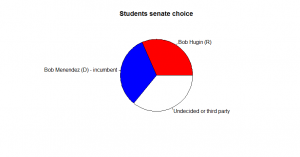
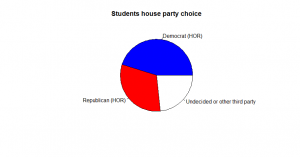
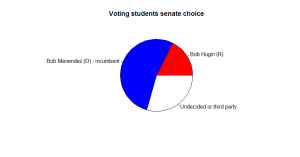
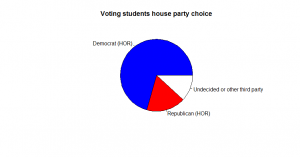
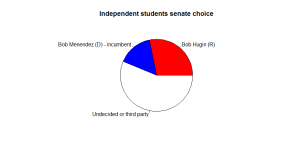
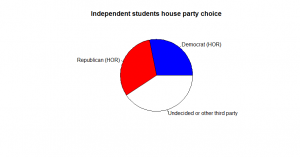
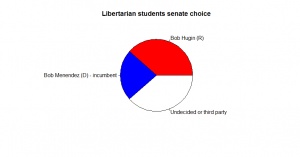
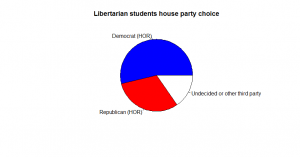
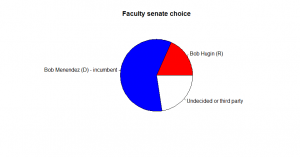
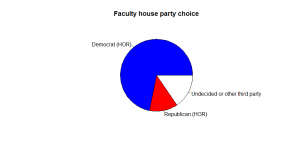
While the student body as a whole seems to be more conservative than the faculty, when you only look at those students who are old enough to vote the political leanings of the two become very similar. The other big surprise in the data is that those who self-identify with the Libertarian party (the sample size is only 13), traditionally seen as conservative, not only display heterogenous voting behaviour but seem to be less conservative than those who self-identify as independents. Finally, an obvious takeaway from the data is that among the Pingry community, regardless of age or political affiliation, Democrats in house elections are more popular than Senator Menendez. This may be because of Menendez’s corruption scandals or because of Bob Hugin’s position within the Pingry community.
Student House and Senate choices by party affiliation
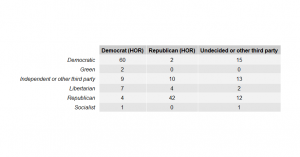
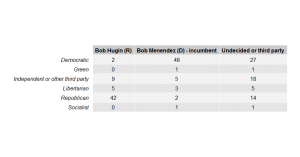
The above tables show the distribution of student votes by party in the house and senate elections. It appears to show that, at least in the Pingry community, there does not appear to be a significant amount of split tickets or individuals voting against party line. Although those who self-identify as Libertarian or independent do seem split on electoral issues , their vote distributions seem similar between the senate and house elections. For the few people who break with party line among those who identify with the Democratic or Republican parties it is the same 2 individuals in the Democratic group and of the 4 Republicans who voted for a Democrat in the house, 2 also voted for Menendez. Despite the dramatic shifts in the political environment over the last few years, few seem willing to switch parties suggesting that little may change.
-Aditya Gollpudi
